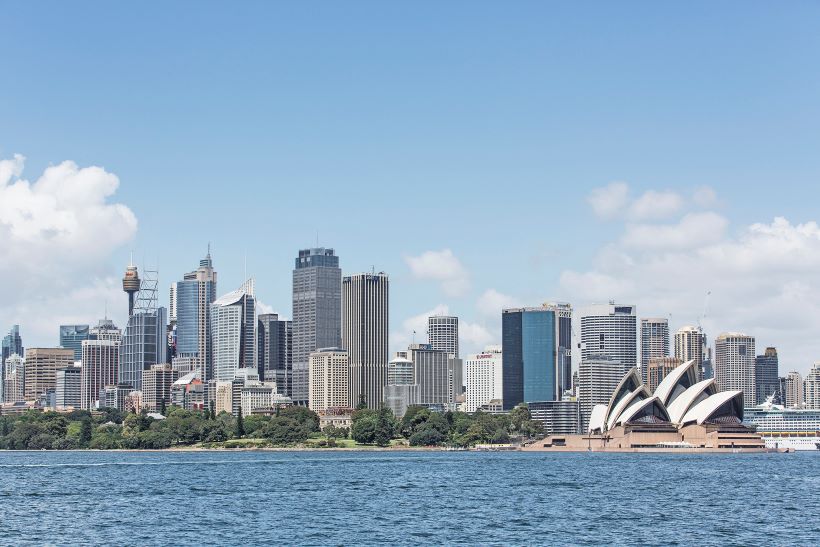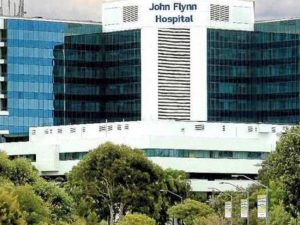Investors confident as office market continues its recovery

Investors remain confident about the future of Australia’s office market and demand for office space has increased, with experts tipping the recovery will continue this year.
PropTrack economist Anne Flaherty said sales of offices have increased, while tenant demand has strengthened in every capital city.
“Despite the rise in remote working seen since the onset of the pandemic, demand for office space is recovering, with occupier demand increasing over the second half of 2021,” Ms Flaherty said.
“After declining over the 12 months following the onset of the pandemic, effective rents have stabilised, and there are early signs we will see a return to growth in 2022.”

Investors remain confident about the future of the office market. Picture: Getty
Releasing the PropTrack Office Snapshot 2021 report on Friday, Ms Flaherty said investors remain confident about the future of the office market, with several major transactions occurring in 2021.
“Office assets remain highly sought-after by investors, however they are displaying more caution due to the increased risk of vacancy post COVID-19,” she said.
“The rise in remote and hybrid working practices since the onset of COVID-19 has led many of our cities’ largest occupiers to reduce their office footprints.
“Despite this, many investors are continuing to display confidence in the future of the sector.”
Ms Flaherty said overall transaction volumes in 2021 were up 57% from 2020’s levels according to Real Capital Analytics estimates, with 10 office sales worth $100 million-plus occurring in the fourth quarter alone. Overall sales volumes still remain below pre-COVID levels, she added.
CBRE’s Pacific head of office leasing Mark Curtain said the national office market continued to recover through the second half of 2021, with strong tenant enquiry and transactional activity recorded in most major cities.
“Most markets have now passed the worst of the downturn and we expect the recovery story of the Australian office market to continue in 2022,” Mr Curtain said.

The recovery of the Australian office market is expected to continue in 2022. Picture: realcommercial.com.au/for-sale
According to Colliers, demand and deals in Australia’s major office markets are on the rise despite pandemic-induced disruptions in some of the biggest CBDs.
Colliers research showed demand for office space nationally increased by 37% year-on-year, with more than 1.6 million sqm worth of office enquiry recorded in the second half of 2021 compared to the same period in 2020.
Colliers managing director of office leasing Simon Hunt said the level of enquiry in the final quarter of 2021 alone – at more than 730,000 sqm – was the highest on record for the fourth quarter.
“Demand for office space is up markedly on the previous year with the majority of markets seeing an increase in the area enquired for in 2021 and most also witnessing an increase in the number of enquiries by volume,” he said.
Omicron delays return to office
Ms Flaherty said Omicron has delayed the return to the office that was expected following Australia’s vaccine thresholds being met, and occupancy rates remain extremely low around the country.
“Many businesses still face significant uncertainty around their space requirements, and this outbreak has extended the period of uncertainty.”
Ms Flaherty said work from home mandates, especially in Melbourne and Sydney, led many businesses to delay leasing decisions until they had more confidence about an uninterrupted return to the office.
“Investors, in contrast, tend to hold a longer term view. As a result, the recovery in buyer demand has outpaced that of leasing demand.”
Knight Frank national head of leasing Andrea Roberts said the momentum that was built in most markets in the second half of 2021 sparked expectations of a frantic start to 2022, similar to that experienced a year ago.
“However, with the Omicron wave, this has caused some disruption to the continuation of that momentum of activity, but we see this as very much a short-term frustration rather than any serious cause of concern for office markets.”

The Omicron wave has disrupted the return of workers to offices. Picture: realcommercial.com.au/for-sale
Ms Roberts said there was still pent-up demand resulting from workplace decisions being put on hold or delayed through 2020 and 2021.
“Companies are valuing office space, especially new and premium buildings as they need to bring their teams back together with an improved quality and amenity offering for their workplaces.”
Ms Flaherty said office investors had a growing focus on assets with high-quality tenants and lease structures already in place.
“In 2022, the focus of office investors is likely to be on assets offering secure income streams with low vacancy risk,” Ms Flaherty said.
“Changing work practices have shifted the needs of office occupiers which is also likely to drive a rise in refurbishments.”
Demand up in CBD office markets
The Property Council of Australia’s latest Office Market Report, released on Thursday, showed demand for office space lifted in every capital city CBD during the six months to January 2022.
The increase in tenant demand bucked expectations that the rise in remote working would lead to decreased demand for space, Ms Flaherty said.
“While vacancy rates have risen in the Sydney, Melbourne and Brisbane CBDs over this period, this was due to an increase in supply in these markets outweighing the growth in tenant demand,” she said.
“Every other CBD market has seen vacancy decline over the six months.”

Tenant demand for office space has lifted in every capital city CBD. Picture: Getty
The Property Council report showed tenant demand lifted by an average of 1% across the country’s CBDs, and by 0.7% in non-CBD markets. Every capital city except Sydney and Brisbane recording demand increases higher than their historical average.
Property Council chief executive Ken Morrison said while many had expected the pandemic to cause a major spike in office vacancy, the figures showed that had not eventuated.
“These are a striking set of figures which illustrate that the office is alive and well in today’s economy, even as the pandemic changes how we use workspaces,” he said.
“While aggregate vacancy levels have risen from 11.9% to 12.1%, the driver of this has been new supply of office space, not a drop in demand.
“The reality is that most CBD businesses continue to see the office as integral to their future, and that is reflected in the increased demand for office space over the past six months.”
According to Cushman & Wakefield’s latest office report, the Melbourne and Sydney office leasing markets are poised to return to growth in 2022 as rents shrugged off the impacts of protracted lockdowns to further stabilise in the fourth quarter of 2021.
Cushman & Wakefield head of Australian research John Sears said Australia’s major CBD office leasing markets were largely unmoved in the second half of 2021 despite multi-month lockdowns, and have started the year on a stable footing.
“Rents continued to plateau in Sydney and Melbourne in the fourth quarter and leasing activity was surprisingly strong heading into the end of 2021,” Mr Sears said.
“While the impact of Omicron cannot be ignored, we appear to be emerging from the bottom of the cycle with a healthy pipeline of leasing briefs.
“We anticipate a return to rental growth in the current half, which will be helped by the return of workers to CBD offices once Omicron cases recede.”
Ms Flaherty said the decrease in effective rents since the onset of the pandemic had increased the affordability of CBD offices.
“One result of this is that across Australia, the proportion of tenants searching to lease office space in a CBD has increased,” she said.
“Many tenants may see the current market as an opportune time to secure a good deal.”







